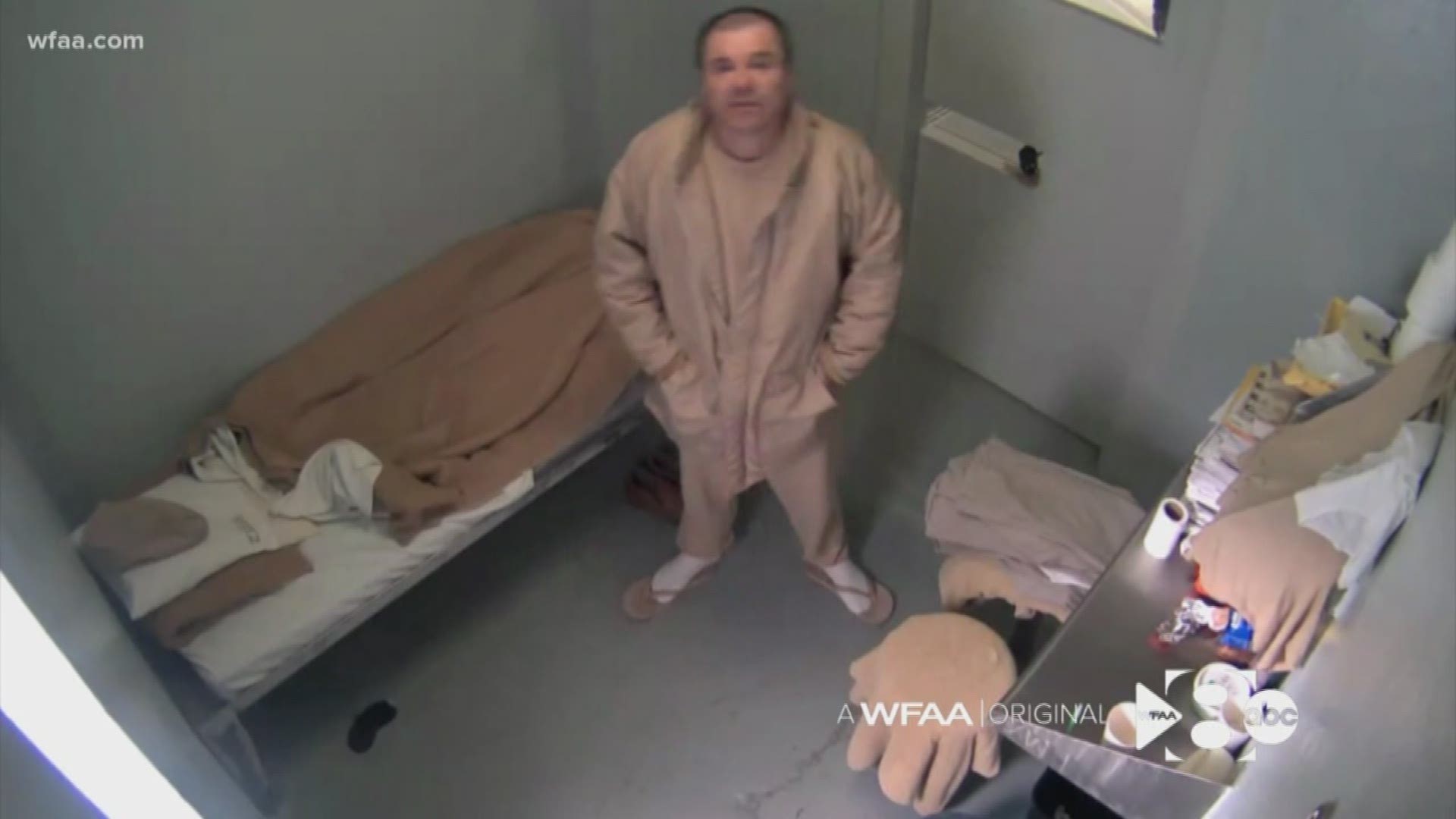DALLAS, Texas — The more than 40-year criminal career of drug kingpin Joaquín Guzmán Loera, or better known as "El Chapo," officially ended on Wednesday after a federal judge in New York sentenced him to life in a U.S. prison.
But a former leader in the Drug Enforcement Administration, who worked in Dallas for years, said Guzmán's fate is a victory that seems hollow.
Last year, Guzmán was convicted on money laundering, drug trafficking, and conspiracy to murder charges.
Over the past three decades, he helped smuggle more than $12 billion in drugs into the U.S. and formed distribution markets in almost every major U.S. city.
Guzmán, the 62-year-old leader of the Sinaloa Cartel, was seen by many as public enemy number one when it came to America and Mexico's drug war.
He was captured several times in Mexico but made dramatic escapes from Mexican prisons.
Those escapes were successful due in part to Sinaloa bribes and intimidation of officials in Mexico.
Guzmán's mere extradition to the U.S. to stand for the crimes he committed was considered a major win but came with the caveat that Guzmán would not face the death penalty.
Jordan led the Dallas DEA office as Special Agent in Charge from 1985 to 1995 and was head of the El Paso Intelligence Center in 1996.
"The guy had no mercy on his victims, he beheaded people, he tortured people, he buried people alive," Jordan said.
"The fact that we were able to get him extradited to the United States was a grand slam."
Jordan called Guzmán's extradition to the U.S. a warning to the "Mexican Federation," a term he uses to describe all of the cartels and their leaders.
"For all of the godfathers, whether they're in Colombia or Mexico, it meant if we can get you on this side of the border....you will never see daylight again," Jordan said.
He is also aware that warning fell on deaf ears.
Earlier this year, the murder rate in Mexico spiked. Around 94 people are still being killed every day, and last month the country saw more than 3,000 people killed, which is the most on record for a month.
Drugs also continue to flow into the U.S.
To Jordan, Guzmán was only a weed. Even though he was influential, cutting him out meant two more like him sprung up.
"The wheels never stopped turning. Even though Guzmán has been sentenced, that doesn't stop anything," Jordan said.
Guzmán's fate may also mean no justice for several American families who had loved ones allegedly murdered by the notorious kingpin.
Last year, WFAA broke a story revealing that three former Mexican police officers, who are now in witness protection, informed federal prosecutors that Guzmán was personally involved in the murder of at least six Americans.
John Walker, Alberto Radalat from Fort Worth, Benjamin Mascarenas and his wife Pat, along with Dennis and Rose Carlson were allegedly killed by Guzmán between 1984 and 1985.
One protected witness told WFAA that they were all mistaken for undercover DEA agents at the time.
Guadalajara cartel bosses sought revenge for drug raids in 1984 that led to infuriating losses, including the torching of 10,000 tons of marijuana, worth an estimated $5 billion.
On Jan. 30, 1985, Walker, 35, and Radelat, 33, walked into a Guadalajara restaurant filled with cartel members.
Walker, a Vietnam veteran and recipient of two Purple Hearts, was in Guadalajara writing a novel. He decided to have dinner with Radelat, a dental student studying at the University of Guadalajara.
When spotted, both were taken to a back room near the kitchen. One of the witnesses told WFAA trafficker Rafael Caro Quintero broke his pistol over the head of one of the men.
Guzmán was allegedly one of the men who tortured them with an ice pick before both ultimately were killed.
The protected witness claimed he saw Guzmán cut Walker’s throat – almost decapitating him – as women cooking nearby in the kitchen were told to keep quiet.
Guzmán then helped wrap the bodies and bury them in a nearby park, according to the witness.
Family members wanted Guzmán formally charged with the deaths.
When reached for comment about potential charges last year, Radelat’s sister responded, “the sooner, the better.”
The U.S. Attorney’s Office in Los Angeles was informed of what happened but declined to comment when WFAA broke the story.
Now that Guzmán is going to spend the rest of his life in jail, Jordan thinks he'll never be brought to justice for the killings.
"I was told in the last 24 hours that they won't pursue charges," Jordan said. "To have justice prevail, you have to charge somebody...otherwise it's nothing."
A spokesperson for the U.S. Attorney’s Office in Los Angeles didn't respond for comment Wednesday night.

